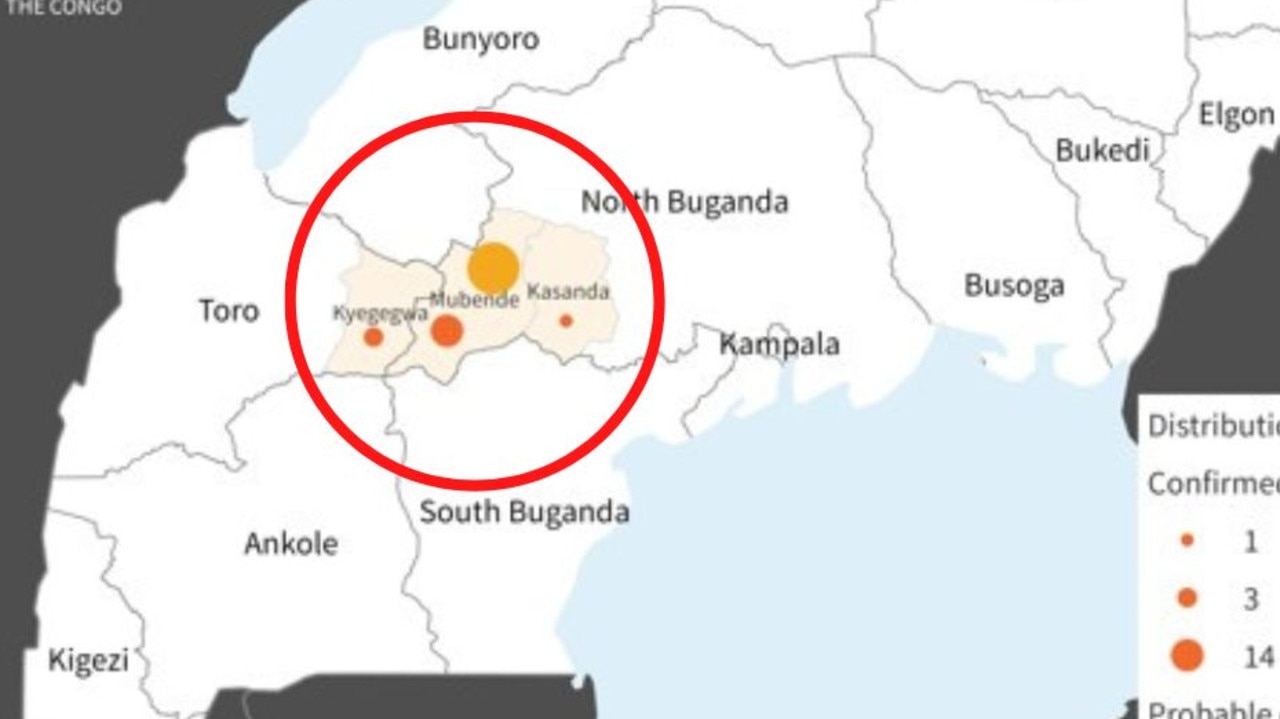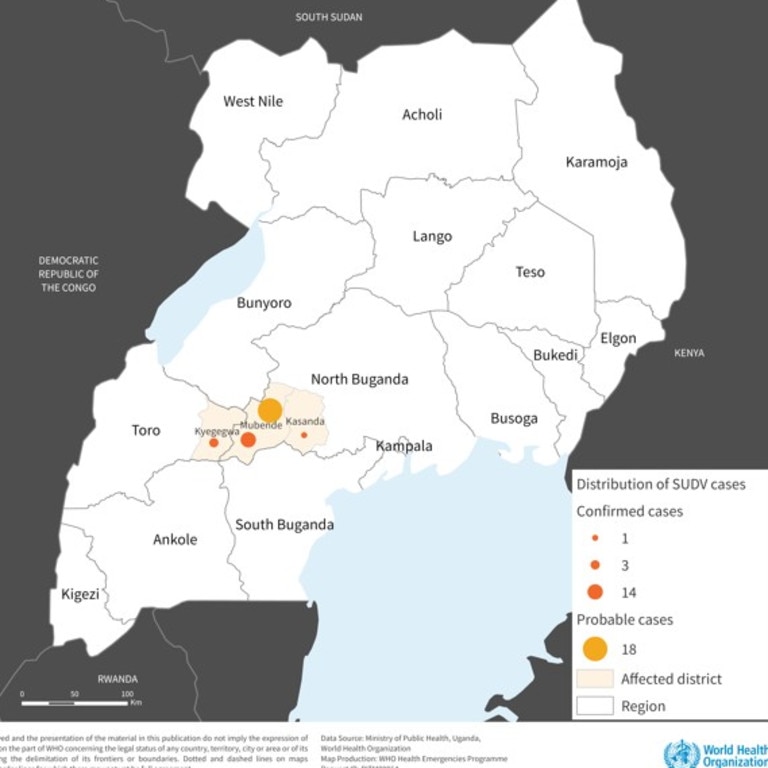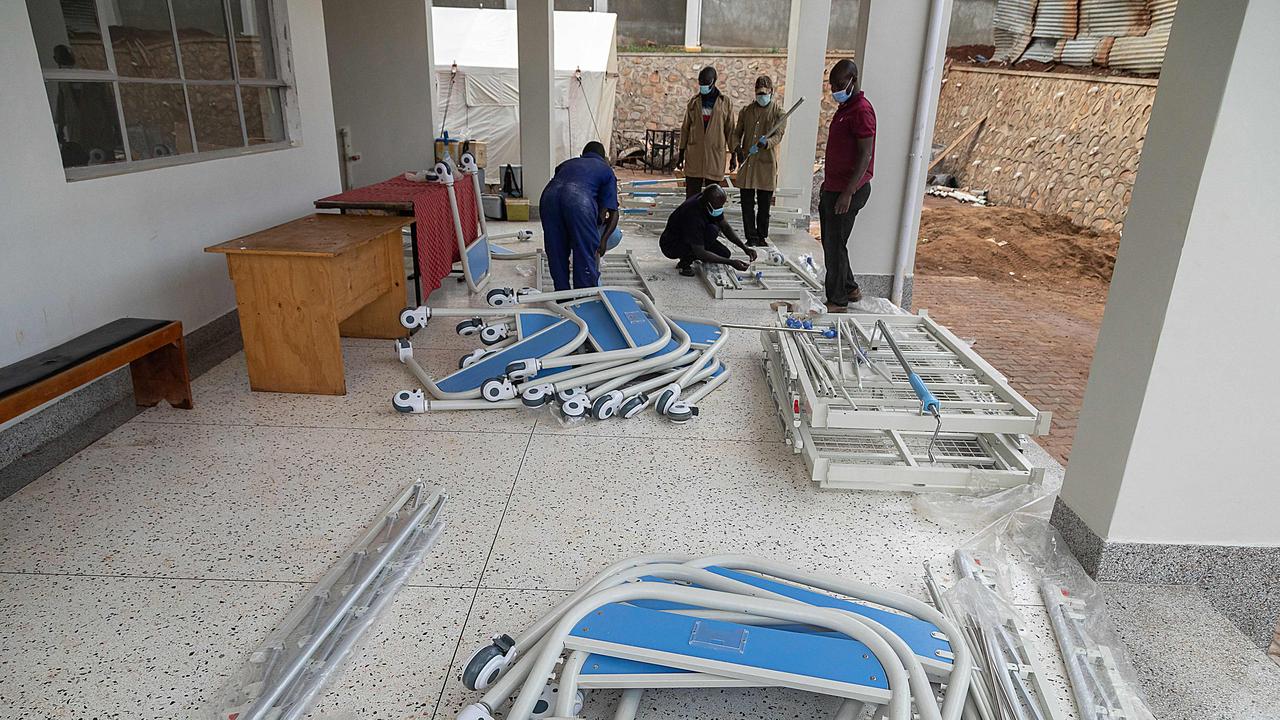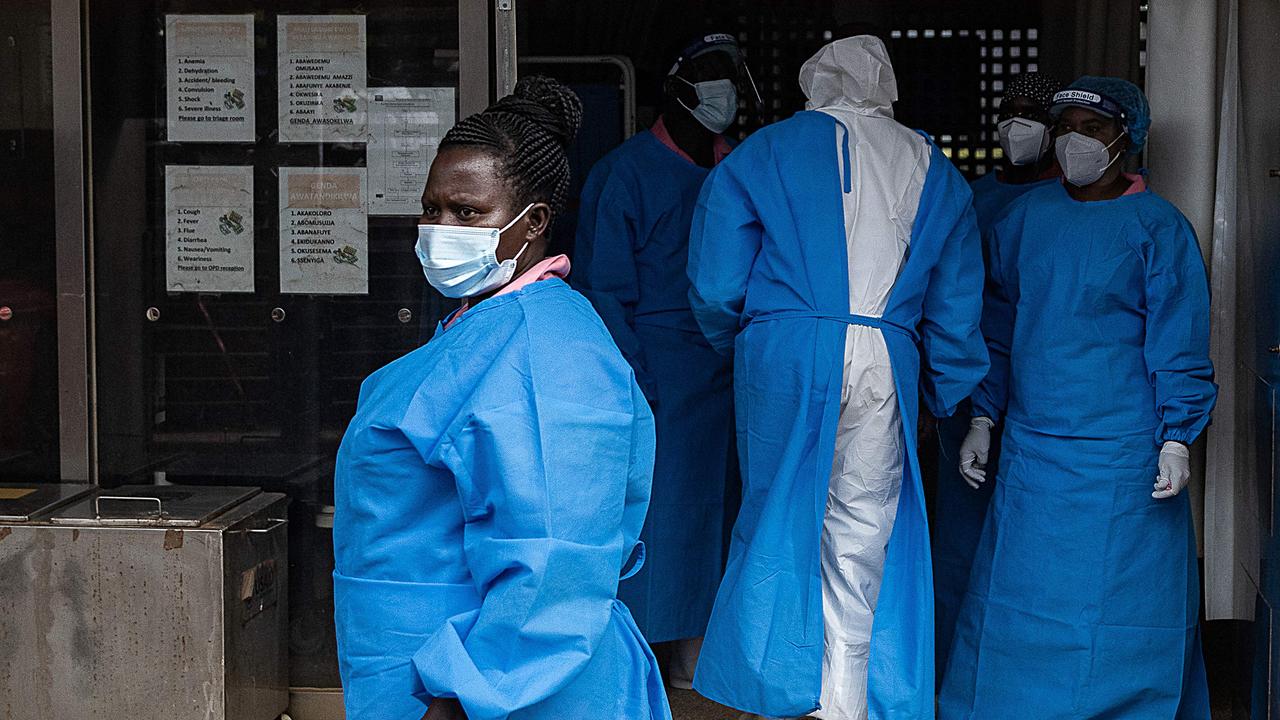Ebola outbreak in Uganda: WHO warning after 18 cases detected
The WHO has warned of a potential global outbreak of ebola after 18 cases of the often fatal virus were detected in Uganda.

The World Health Organisation has warned of potential international spread of ebola after up to 36 suspected cases of the virus were detected in Uganda.
As of September 25, 18 cases of the often fatal disease have been confirmed across three districts in Uganda, in addition to 18 probable cases.
In response, Uganda health authorities have declared an outbreak of ebola, with five deaths linked to confirmed cases, and 18 potential deaths as a result of ebola.
The virus has been detected in people aged from one to 60 years old.
Stream the latest health news with Flash. 25+ news channels in 1 place. New to Flash? Try 1 month free. Offer ends 31 October, 2022 >

On Monday, the WHO also warned that while the Mubende district shares “no international borders”, the “risk of international spread cannot be ruled out due to the active cross-border population movement”.
“In addition, investigations are ongoing to establish transmission chains and the scope of the outbreak is yet to be determined,” the WHO said in a statement.
Despite this, the overall risk for regional and global spread has been determined as low.

What people know about this strain of ebola
Although the risk for wider infection has been deemed as low, testing has revealed the outbreak is of the Sudan strain of the virus.
The illness is severe and deadly, with previous outbreaks reporting a fatality ratio between 41 per cent to 100 per cent.
This is the first ebola outbreak that’s originated from the Sudan virus since 2012.
The first confirmed case was linked to a 24-year-old man who presented with symptoms on September 11 and died six days later on September 17.
He reported symptoms including high-grade fever, tonic convulsions, bloodstained vomit and diarrhoea, loss of appetite, pain while swallowing, chest pain, dry cough and bleeding in the eyes.

Transmission can occur via contact between the bodily fluids and contaminated remains of infected humans and infected animals like fruit bats, chimpanzees, gorillas, monkeys, forest antelope or porcupines, according to the WHO.
While there have been period outbreaks of the ebola in Africa, the disease is often contained in the African continent.
To date, there have never been any confirmed cases of ebola in Australia.
The deadliest epidemic was reported in West Africa between 2013 and 2015. Originating in Guinea, the disease spread rapidly to Liberia, and Sierra Leone, with some cases also detected in Mali and Nigeria.
In that time, a total of 28,616 infections and 11,310 deaths were recorded.






